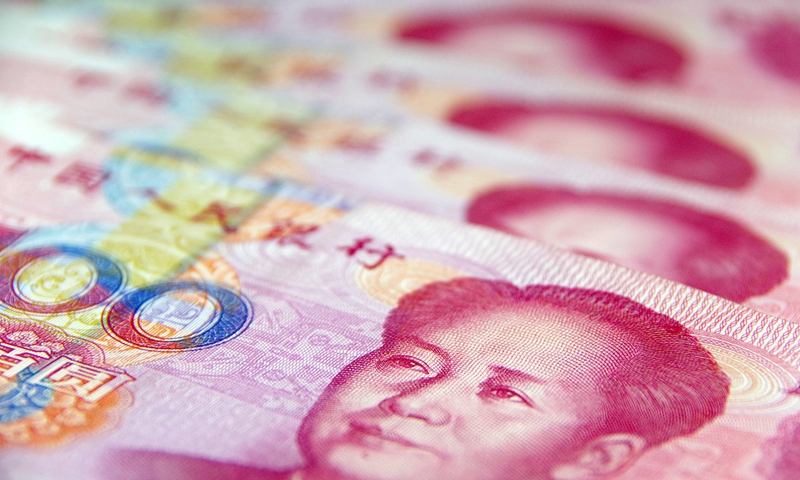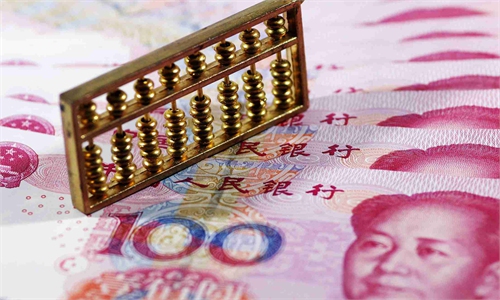
RMB Photo:VCG
Argentina will make part of its debt payments to the IMF in yuan through the extension of its currency swap with China, Argentine Economy Minister Sergio Massa said in a speech on YouTube on Monday, expressing his thanks to the Chinese government.
According to Massa, the Argentine government will repay $2.7 billion in debt to the IMF as it comes due, of which $1 billion is to be financed by the Development Bank of Latin America, known as CAF, and the other $1.7 billion will be paid using the equivalent in yuan under the China-Argentina currency swap agreement.
Massa thanked the People's Bank of China, the central bank, and the Chinese government "for making the decision to authorize the disbursement," saying it would "ensure that Argentina can continue its exports while meeting its payment obligations" to the IMF, according to the South China Morning Post.
The agreement would allow Argentina to meet its IMF obligations "without using a single dollar of its reserves," Massa noted.
The Central Bank of Argentina announced earlier it will allow financial institutions to use the yuan as a currency for deposits by individuals and legal entities. Financial institutions will be able to open both checking and savings accounts denominated in the Chinese currency.
"The move will further enhance economic and trade cooperation between China and Argentina, as well as accelerate the internationalization of the Chinese currency," Song Wei, a professor at the school of international relations and diplomacy at Beijing Foreign Studies University, told the Global Times.
Song noted that Argentina has chosen the yuan to payback its debt, which will have a demonstration effect on other emerging market economies.
"In addition, the use of the yuan to settle Argentina's debt also demonstrated that China attaches great importance to global debt sustainability and has always done its utmost to help developing countries alleviate their debt burdens," Song noted.
With de-dollarization gathering pace in the world, and many countries seeking alternatives to the dollar, the internationalization of the yuan has been gaining momentum since the start of the year.
Bolivia was the third South American nation to use the yuan for trade settlements, and the Bolivian government is pushing for the opening of Chinese banks in the country as soon as possible, according to media reports.
Bolivian Economy Minister Marcelo Montenegro said that banana, zinc and wood exporters are conducting transactions in the yuan, as well as importers of vehicles and other goods.
In July, Indian refiners started paying for some of its oil imports from Russia in the yuan as an alternative to the US dollar, according to a report by Reuters.
Global Times

